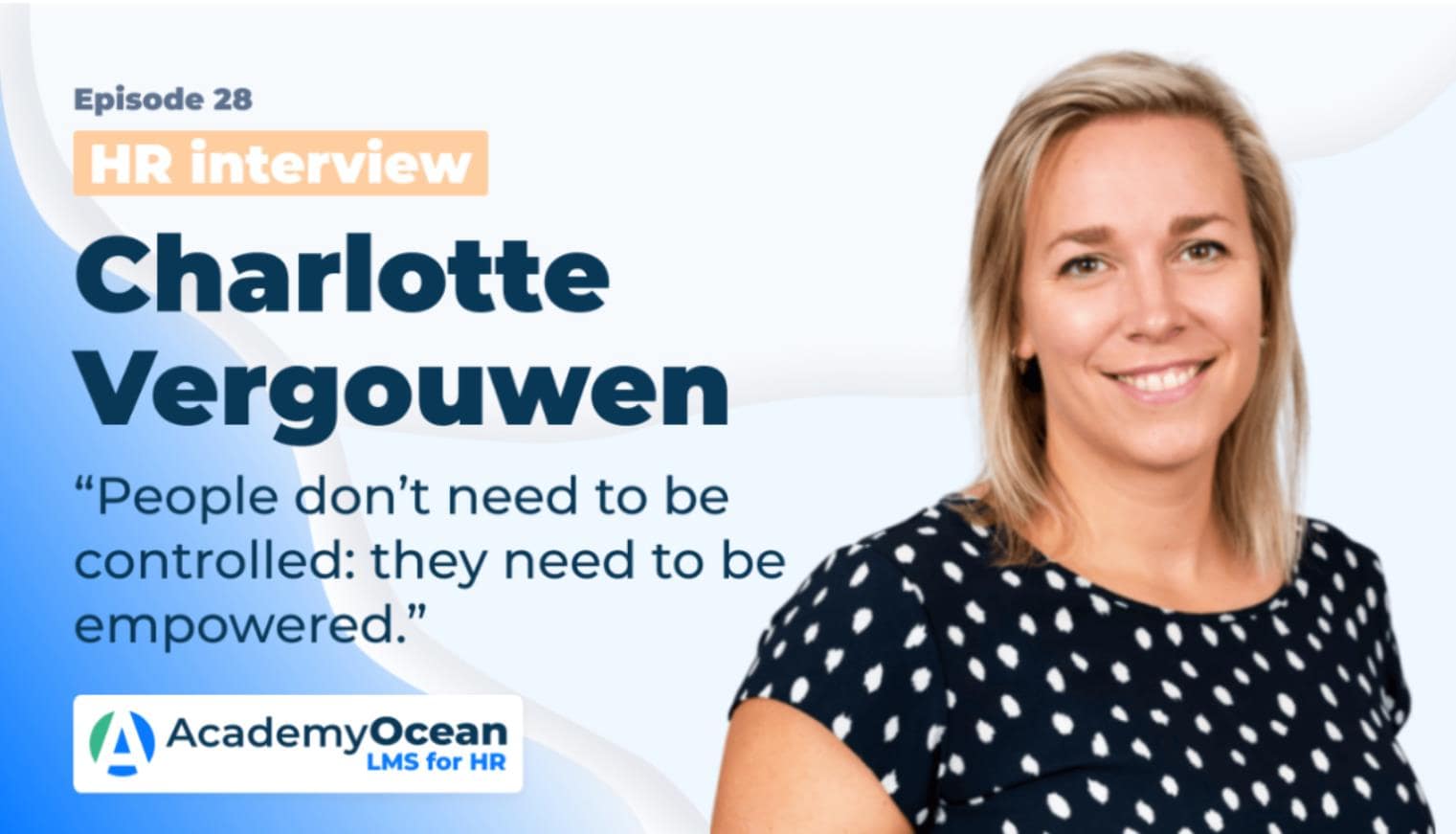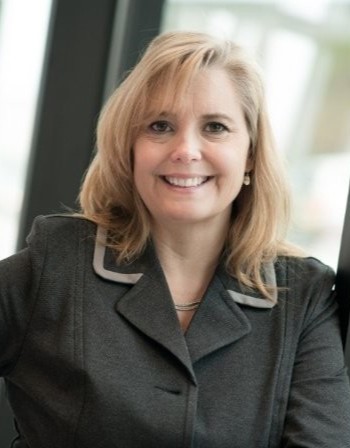Interview #27 Dana Davis: "I had a couple of previous lives before HR and I came into HR through the back door"

📌 Read the interview with Dana Davis to find out why it is so hard to break into HR in the USA and what kind of onboarding process is ideal.
Hello everyone!
We continue gathering inspiring ideas and insights from HR experts worldwide, and today we are ready to present you our new video interview.
Today, we will have a talk with Strategic HR Business Partner, Change Leader, OD/HR Program Manager and Coach & Trusted Advisor Dana Davis.

Dana is a Senior HR/ Talent Management Professional with extensive experience in corporate settings including Fortune 50 and Fortune 100 companies.
Her broad HR background includes Change Leadership, HR Transformation, Talent Management, Organizational Design & Development.
Dana's experiences abroad in Europe & the Middle East have greatly influenced her multicultural mindset and passion for leading diversity & inclusion initiatives.
At the end of the article, a recording of our interview with Dana will be waiting for you.
AO: Nice to meet you, Dana and welcome to the AcademyOcean "studio".
Let's start with your short biography. Can you tell me about some of your achievements or interesting facts that our audience should know about you?
D: Okay. Thank you. Well, I have been in HR for quite some time, almost 20 years. It's a profession I always knew that I wanted to get into, but in the United States, it is one that is very hard to break into because you need the experience, but you can't get the experience until you're hired.
One of the things that I'm passionate about I had an opportunity to go to school in Europe, in Switzerland, and that is where I went to school and made friends from all over the world.
And it really taught me the importance of diversity and valuing other people's experiences and opinions.
And I think that's something that I've carried with me in my HR career; to listen to understand and suspend judgment. And I also think that is one of the things that has helped me be successful.
AO: Okay and did you work somewhere else before becoming an HR professional?
D: I did. I had a couple of previous lives before HR. I was in the travel industry for a while because I loved to travel, having been in Europe. When I finished my studies, I studied communications and journalism because I figured that I would need to write employee newsletters as part of HR. It wasn't easy to break into HR. so one of my first HR-related roles was a benefits administrator for a third-party benefits administrator. So, I kind of came into HR through the back door.

AO: Dana, tell us about the difficulties. What challenges do you usually face and how do you meet them?
D: I think HR brings different challenges, depending on the company or people you are working with. One of the biggest challenges HR people or HR specialists have is being some of the hardest working people in a business but not necessarily being recognized for the work they do. Because of the need for confidentiality, people don't always have visibility to the work that they are doing or the impact that they are making behind the scenes. So, balancing the needs of the business and the needs of the people can be challenging.
AO: Okay, and talking about the future, where do you see the HR industry in five years?
D: I wish I had a crystal ball. I would be rich. I think, over the next five years, we are going to continue to see an increased focus on diversity and inclusion, especially in the States. I believe we're going to really look at how we set up this new world that we are living in with remote work and managing teams remotely. We still have a lot to learn from that, which will continue through several years.

AO: And what about the nearest future. What types of tools every HR manager/specialist should use this year?
D: I might be biased because I specialize in change management. Still, I believe some of the changes that came about through 2020; there needs to be an increased focus on change management and how we help our organizations manage the people side of change. That is going to be important.
I also think that HR could use some of the tools related to systems thinking. So, they can understand a little more about how employees are experiencing the organization or the system and how it may differ from how the company and HR perceive the employees are experiencing this system. There can be a disconnect and it is really important for retention reasons to fill that gap.
Which corporate LMS is better to choose?
AO: Dana, Is there a person in your life who influenced your professional choice? Can you name one or several HR experts (or maybe it is your family member) who you highly appreciate or take as an example?
D: First and foremost, my father. He had such a huge influence on who I am today. He was the one when we first moved to Saudi Arabia, who told me that "I would see a lot of things that were different, and they're not right and they're not wrong, They're just different; And if I had an open mind, I could learn a lot." That is something that I have taken, through my career with me.
On a professional level, there are a couple of HR influencers that I follow. One of them is named Cy Wakeman. She writes about reality-based leadership not softening a message to the point where it gets lost and being real with people in your organization. And then Brene Brown, who wrote Daring Greatly, which talks about the courage to be vulnerable. And the hesitancy to do that in business. We have room to learn from that.
AO: Thank you, Dana. Now, let's talk about the onboarding process. How does the onboarding process go into your company? And what is an ideal onboarding process for new hires for you?
D: I was fortunate until recently to work in a large global company that recognized the importance of Onboarding and spent a lot of time upgrading their onboarding experience. It does not just start when the employee walks in the door on their first day of work.
The Onboarding experience carries through from the candidate experience. So, from the moment somebody applies to the job, their experience of how they're called back, what the conversations are, and how they're prepared to enter the workforce. The company that I came from invested a lot of time and resources to upscale its onboarding processes.
I was fortunate to be on some of the project teams that worked on that. Everything from how they learn about the business, how employees connect with their new manager and their team. There are a lot of components that need to happen to make that onboarding experience successful.
AO: And what about traditions? Did you work in some companies that have extraordinary traditions or some unusual ones? or just the traditions you liked a lot?
D: I have worked in startups and I've worked in large companies, and there is always something special about each one. I think one of the ones that I really appreciated more recently was my previous company. I worked as part of a global HR team where we were dispersed across the United States and the UK. The senior leaders made a point to twice a year, either at headquarters or one of the locations where we did the business, have an HR summit where we all came together. We did some strategic planning. there was recognition, and then there was always a professional development component at the HR summit.
HR team members from within the organization would do the project planning for the theme and activities. It was nice to spend those three days with like-minded people on the same team. That was something that I really appreciated.
Essentials of a Successful Team

AO: What is the most valuable professional development advice you have ever gotten?
D: One was simple. In one of my previous companies; I made a pretty big mistake. I went to my boss and I said, "Okay, fire me now because I just made this huge mistake, and this is what I did…" I think it's important to own up, to your mistakes. She was very calm and replied
“Well, Dana, it's not how you fall. It's how you get up. So, what do we need to do to fix it?"
Because she was very calm created a safe place to make a mistake and learn from it rather than be put down for it.
AO: Okay, Dana and talking about HR trends. What HR trends do you think will emerge this year?
D: I think some of them were already seeing. As I look across LinkedIn. The need for diversity and inclusion and a focus on that in an organization will continue through 2021. And I really think the challenge of keeping people engaged.
In 2020 it was all about how we get people set up to be productive and work from home.
And now that has been successful for many companies. I think 2021 is going to be about refining that, and not just about productivity, but engagement. Setting employees and managers up for success with how they work. Some people will want to come back to the workplace because they need that structure and that connection, so, how do we build a hybrid approach that's good for the business and good for the people who are doing the work.
AO: Dana, let's finish our interview with a more relaxing question. What was the funniest or most unusual incident during your HR practice?
D: I don't know if it was funny. I would categorize it as bizarre. I was in a Talent Management role, and I managed the recruiting and training function for a startup. For the first year and a half I was there, it was about recruiting people, working with visas bringing people into the organization.
In 2018, with the economic challenges, suddenly I found myself as part of the team reducing the size of the organization.
Then my job became helping people build their resume and learn to build their LinkedIn profile during a difficult time in to find work. So, it wasn't how I envisioned that job going, and I wouldn't necessarily think it was a funny, but it was certainly odd and taught me the importance of being flexible and able to pivot when needed.
AO: Thanks a lot, Dana for these great and inspiring answers. We wish you all the best in your career!
That's all for today, friends. See you at the next interview!
In case you would like to ask your own questions, write them down in the comments. Also, if you want to read an interview with a particular person, let us know.
Learn more about LMS 2.0 Platform for employee training.
If you want to learn more about the HR field, find a lot of useful content, join the most secret HR group.
Take care 😇